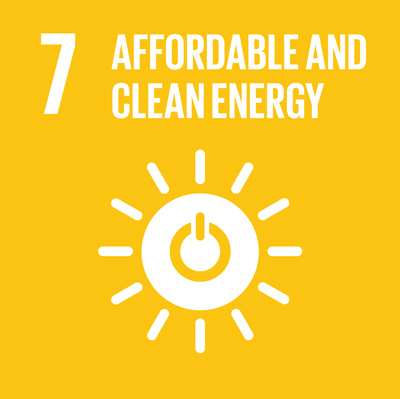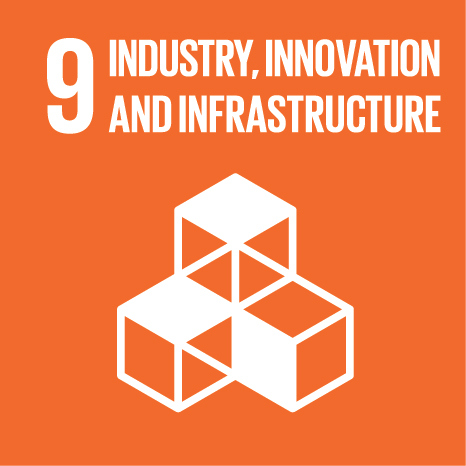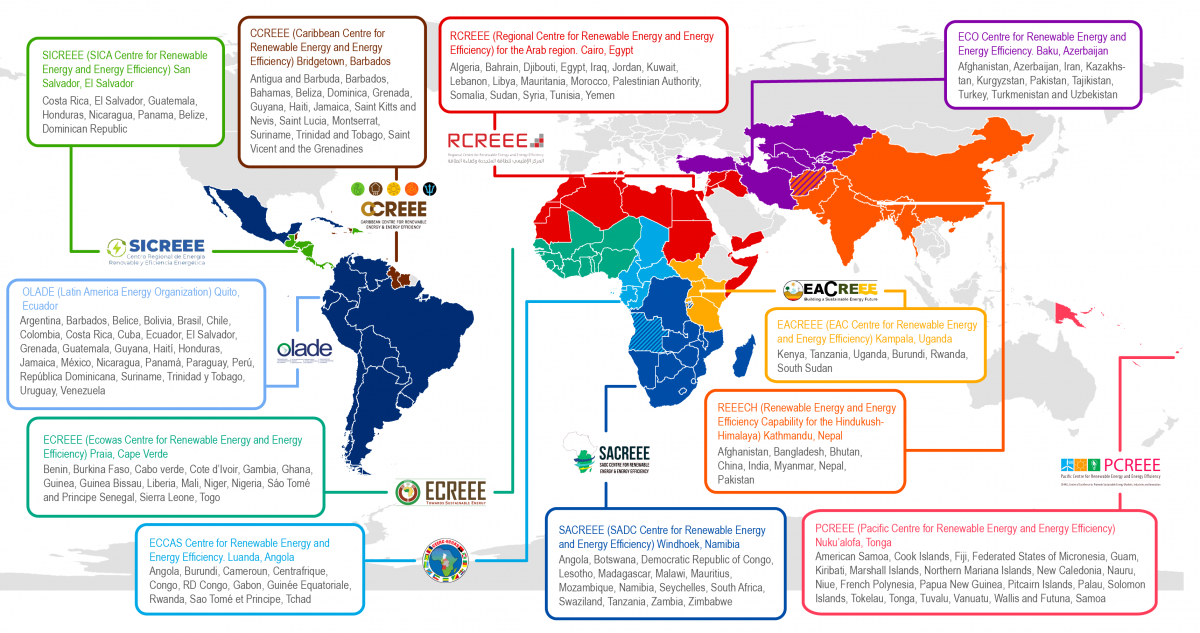Background
Status of the Global Network of Regional Sustainable Energy Centers (GN-SEC)
By looking at the moderate growth rates of sustainable energy technology markets in many developing countries, it becomes obvious that SDG-7, SDG-9 and SDG-13 cannot be attained by 2030 in business-as-usual scenarios. There is need for economies of scale and speed. In this context, regional, south-south and triangular cooperation can become an important accelerator.
To address the missing link of regional clean energy cooperation in developing countries, UNIDO launched the Global Network of Regional Sustainable Energy Centres (GN-SEC) programme in 2010. Under a joint platform, UNIDO assists regional economic communities (RECs) in the creation and operation of sustainable energy centres, which drive and accelerate the energy transition “from the region for the region”. The GN-SEC is an innovative south-south and triangular multi-stakeholder partnership.
Today, the GN-SEC network comprises eight operating centres in the Arab and African region (ECOWAS, SADC, EAC, Arab League), Asia and Pacific (SPC, ICIMOD), as well as Latin America (CARICOM, SICA). Currently, the network is expanding to Central Africa (ECCAS) and Central Asia (ECO). The centres have approval by more than 113 Ministers of Energy and/or Heads of State and serves 41 of 46 least developed countries (LDCs) and 35 of 39 small island developing states (SIDS). To increase the geographic socpe, a joint declaration on GN-SEC cooperation was signed between the Latin American Energy Organisation (OLADE) and UNIDO in 2021.
A presentation on the current status of the GN-SEC is available here.
Further background information on the GN-SEC is available here.
Watch the video: "The GN-SEC explained in one hour"
The GN-SEC Centres:
- ECOWAS Centre for Renewable Energy and Energy Efficiency (ECREEE) in partnership with ECOWAS
- Regional Centre for Renewable Energy and Energy Efficiency (RCREEE) in partnership with the Arab League
- SADC Centre for Renewable Energy and Energy Efficiency (SACREEE) in partnership with SADC
- East African Centre for Renewable Energy and Energy Efficiency (EACREEE) in partnership with EAC
- Pacific Centre for Renewable Energy and Energy Efficiency (PCREEE) in partnership with SPC and SIDS DOCK
- Caribbean Centre for Renewable Energy and Energy Efficiency (CCREEE) in partnership with CARICOM and SIDS DOCK
- Renewable Energy and Energy Efficiency Capacity for the Hindu Kush Himalaya (REEECH), in partnership with ICIMOD
- SICA Centre for Renewable Energy and Energy Efficiency (SICREEE), in partnership with SICA
- Centre for Renewable Energy and Energy Efficiency for Central Africa (CEREEAC) in partnership with ECCAS
- ECO Clean Energy Centre (CECECO), in partnership with ECO
- Joint cooperation with the Latin American Energy Organisation (OLADE)
The GN-SEC platform:
The global GN-SEC platform, hosted by UNIDO in Vienna, Austria, facilitates joint coordination, learning, programs, events and initiatives between the centres and various regions. It provides a "virtual" maker-space for south-south and triangular cooperation activities and joint project proposals. For example, SIDS share similar challenges and opportunities when it comes to electric mobility and storage solutions. LDCs in Sub Sahara Africa share a common interest in renewable energy mini-grid development for rural electrification and productive uses. The GN-SEC platform has a Steering Committee (SC), which comprises the regional centres, UNIDO and the core donors. The virutal GN-SEC platform www.gn-sec.net brings the information sources of all centres in real-teime together.

Transitioning towards a new global business model
In line with the SDGs, the GN-SEC works towards a new global business model that allows to produce more of the goods and services required by a growing world population, while using fewer resources and producing less waste and pollution. There is a trend towards circular economy policy concepts against the background of the increasing scarcity and price volatility of raw materials, including fossil fuels, as well as the need to internalize the costs of environmental externalities, such as air, soil and water pollution and climate change caused by global greenhouse gas emissions.
The deployment of sustainable energy technologies is considered as an effective tool to tackle economic/industrial productivity and competitiveness, energy security, energy access/affordability and negative externalities of conventional energy systems (e.g. GHG emissions, local pollution) simultaneously and in an integrated way. In this context, also developing countries have introduced far-reaching targets for scaling-up SECT markets (e.g. NDCs) throughout the next decades. Most of these efforts are closely aligned with economic, industrial and environmental policies targeting increased competitiveness, productivity, inclusiveness, sustainability and resilience to climate change impacts.
Despite growing investments over the past decade, sustainable energy markets have not reached economies of scale particularly in low-income developing countries. In the energy sector, the deployment of renewable energy and energy efficiency solutions remains hindered by a broad range of barriers and shortcomings related to policy and regulation, fiscal and non-fiscal incentives, technical limitations, economics, finance, capacity, quality infrastructure, R&D and innovation frameworks, knowledge and awareness.
Moreover, in a number of developing countries the inability of the domestic private sector to supply sustainable energy quality products and services under competitive prices has become a bottleneck for the uptake of sustainable energy product and service markets. The domestic manufacturing and servicing sector remains weakly developed and the growing demand remains underserved by international suppliers and supply chains due to high market entry costs and risks. Moreover, policies and technology transfer programs tend to focus on creating demand for SECT products and services and tend to ignore supplier-oriented actions focused on strengthening domestic innovation systems, productive industrial capacities and entrepreneurship.
Such trends raise concerns regarding the inclusiveness of technology transfer processes. This offers opportunities, but also bears the risk that the local value and job creation effects of such investments remain low and are not sustained in the long-run. Particularly in least developed countries (LDCs) even basic equipment and services (e.g. consulting, energy auditing, installation, maintenance) continue to be imported. The lack of domestic suppliers and service providers questions the long-term sustainability of already undertaken renewable energy investments in various developing countries. The lack of domestic R&D and entrepreneurship hinders the commercialisation of SECT solutions adapted to the realities of LDCs and Small Island Developing States (SIDS).


![]()
Latest Jobs
GN-SEC Secretariat - 26/01/2024
EACREEE - 15/01/2024
SACREEE - 08/01/2024
EACREEE - 15/01/2024
Latest Procurements
GN-SEC Secretariat - 03/06/2024
ECREEE - 18/05/2024
ECREEE - 25/04/2024





